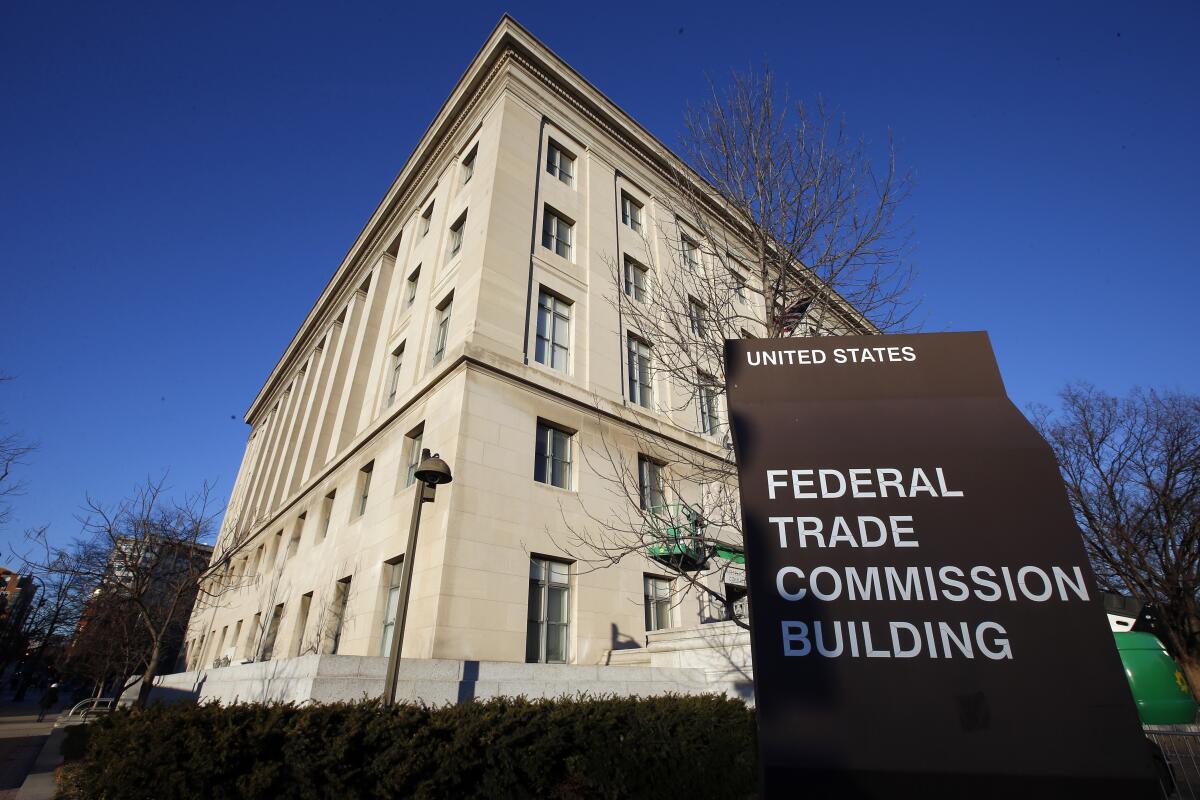FTC proposes rule that would ban noncompete clauses

- Share via
The Federal Trade Commission is proposing a ban on noncompete clauses in employment contracts that keep workers from switching jobs — a sweeping rule likely to affect millions of Americans.
The proposal would bar employers from entering into or enforcing such agreements with employees or independent contractors and require companies to nullify any existing ones within six months. The ban would exempt companies that want to require an owner or partner who is selling a business from immediately reentering the field.
Noncompete agreements, which often bar workers from switching jobs within a certain period, are already illegal in California, North Dakota and Oklahoma, while Illinois, Washington and others have passed laws limiting their use, particularly among low-wage workers.
“Noncompetes are bad for workers and undermine labor competition,” FTC Chair Lina Khan said at a news conference announcing the proposed rule. “When one set of workers are locked in place, that reduces churn overall.”
About one in five Americans is bound by a noncompete agreement, a March 2022 Treasury Department report found. The figure is higher in some industries, such as technology and healthcare, where studies have found as many as 45% of primary care physicians and between 35% and 45% of tech workers are bound by noncompete clauses.
The agency will accept public comment on the proposal for 60 days and consider those submissions before it issues a final version of the rule.
Non-compete agreements are largely unenforceable in California, but President Biden’s executive order calling for the FTC to limit them could still be a game-changer for many tech workers.
In a news release announcing the proposal Thursday, the FTC said the restrictions “block workers from freely switching jobs, depriving them of higher wages and better working conditions, and depriving businesses of a talent pool that they need to build and expand.”
Sean Heather, head of international regulatory affairs and antitrust for the U.S. Chamber of Commerce, called the proposal “blatantly unlawful” and described noncompete clauses as “an important tool in fostering innovation and preserving competition.”
Labor advocates and public officials have taken an aggressive stance against practices they see as anticompetitive. State attorneys general, for instance, have secured agreements in recent years from fast food companies to stop prohibiting their franchisees from hiring away each other’s workers.
Silicon Valley companies including Apple Inc., Alphabet Inc.’s Google, Adobe Inc., and Intel Corp. agreed to a $415-million settlement in 2015 over allegations that they conspired to avoid luring each other’s staffs.
In a July 2021 executive order on competition, President Biden urged the FTC to move forward with new rules on non-compete clauses. A coalition of groups including the labor organizations AFL-CIO and the Service Employees International Union, Democratic senators and attorneys general from California, Illinois and 17 other states have also thrown their support behind a rule.
The proposal is the FTC’s second major rule change under Khan. The agency last year acted on online privacy.
“The agency is once again taking bold action where necessary to protect competition in the labor markets,” Matt Kent, competition policy advocate for the consumer advocacy group Public Citizen, said in an emailed statement.
On Wednesday, the FTC announced cases against three companies — Ardagh Group SA, Owens-Illinois Group Inc. and Prudential Security Inc. — for requiring workers to enter illegal noncompete agreements. Each of the companies agreed to a settlement in which they promised to stop requiring workers to enter noncompete agreements and would inform former employees that the agreements were now void.
More to Read
Inside the business of entertainment
The Wide Shot brings you news, analysis and insights on everything from streaming wars to production — and what it all means for the future.
You may occasionally receive promotional content from the Los Angeles Times.











